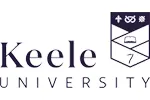Keele's Bioveterinary Science BSc explores modern biological and animal sciences with a focus on animal health, disease and veterinary diagnostics. On successful completion of the programme, you will develop the knowledge and skills to work in a variety of exciting and challenging careers. Such careers could include veterinary diagnostic laboratories, bioveterinary and animal science research and development, and public, animal or environmental health.
Why study this course at Keele?
- Focus on the applications of core bioscience subjects to animal health, disease and diagnostics
- Study a core laboratory programme delivered in state-of-the-art laboratories with a wide range of final year research projects
- Our innovative and relevant assessments are designed to foster creativity, leadership and self-reflection
- Hone your communication skills by presenting your research findings in the context of a realistic research conference experience
- Opportunity to do an extra year of study abroad or on placement
- Our Applied Life Sciences Placement could include research and development at a partner institute or a placement within veterinary diagnostic laboratories
Our contemporary curriculum will provide you with the core knowledge, understanding and skills relevant to the study of animal biology, pathology, diagnostics, and infectious diseases and their control. Building on your knowledge of animal physiology, anatomy, biochemistry and molecular cell biology, you will explore a broad range of bioveterinary issues facing society and discover how scientific research is addressing these problems.
Throughout the programme you will develop a deep understanding of communicable and non-communicable diseases of major animal species, including wildlife, livestock, birds, and companion and display animals. You will also examine a range of routine tests available in veterinary diagnostics laboratories, how these are applied in the screening, diagnosis and monitoring of select diseases, and how this relates to the underlying pathophysiology and treatment of disease.
As you progress through the programme you will discuss current and emerging approaches to the prevention and control of disease outbreaks through vaccination, biosecurity measures and genetic engineering. You will also examine approaches to the control of emergent diseases and zoonotic diseases of public health importance at the animal-human-environment interface, including notifiable infectious diseases and associated regulatory frameworks.
Alongside these topics, animal nutrition, welfare and behaviour will also be explored with a focus on how collectively, bioveterinary and animal health sciences apply to food security and sustainability in commercial food production businesses. In your final year of study you will have the opportunity to put your learning into practice by working on an experimental research project and presenting your findings at our final year research conference.
Please see the course page on the Keele website for full details.






